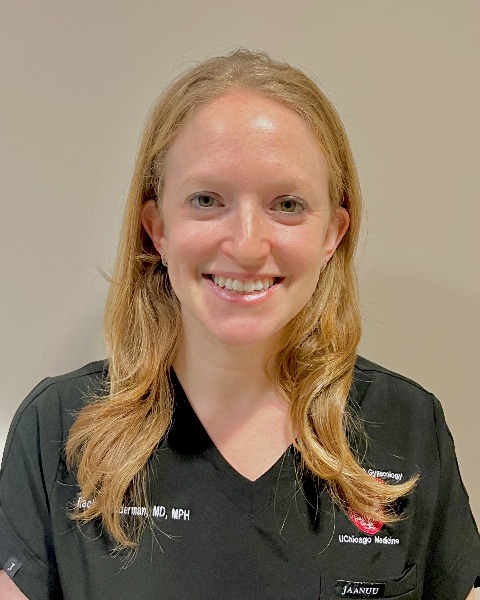Epidemiology
Poster Session 2
(577) Caffeine Intake and Adverse Pregnancy Outcomes Among Live Births: Results from the NuMoM2b Cohort

Rachel S. Ruderman, MD, MPH
University of Chicago
Chicago, IL, United States
Alexa A. Freedman, PhD (she/her/hers)
NorthShore University HealthSystem
Evanston, IL, United States
Sunitha C. Suresh, MD
Physician
NorthShore University Health System
Evanston, Illinois, United States
Primary & Presenting Author(s)
Coauthor(s)
Studies of caffeine intake and adverse pregnancy outcomes (APO) have had mixed results and there is insufficient data to guide patients. We sought to determine the association between caffeine consumption and APO in a large prospective cohort.
Study Design:
This was a secondary analysis of live births in the Nulliparous Pregnancy Outcomes Study: Monitoring Mothers-to-be (nuMoM2b). Caffeine intake was assessed by the self-reported Food Frequency Questionnaire in the first trimester. High caffeine was defined as >200 mg/day per existing literature. APO was defined as a composite of hypertensive disorders of pregnancy, preterm birth, and small for gestational age infant. Logistic models assessed associations between high caffeine intake, APO, and individual APOs, adjusted for confounders. As a secondary analysis, we grouped caffeine intake in 50 mg increments and tested whether consumption was associated with increased odds of APO.
Results:
The analysis included 7,320 pregnant people, for whom the average daily caffeine intake was 87.69mg(SD 89.39). 837(11.4%) of patients had high caffeine intake and 2,506(34.2%) had APO. When adjusted for confounders, high caffeine intake was not associated with a composite of APO (aOR 1.00, 95% CI 0.85-1.17), nor was it associated with any individual APO (Table 1). This finding persisted in a secondary analysis which found no statistically significant increased odds of APO (aOR 1.01, 95% CI .98-1.04, p=0.58) per 50 mg increase in caffeine intake.
Conclusion:
Our study found no association between early pregnancy high caffeine intake and APO among livebirths in a large cohort of nulliparous low risk pregnant patients.


